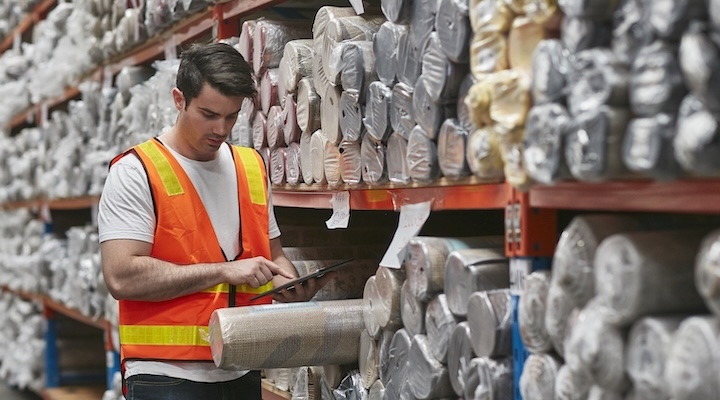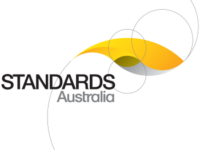Global corporations like Apple or Mattel are well equipped to understand and comply with standards applicable to their consumer products because they are used to producing items en masse, with huge teams monitoring product safety standards and policy and regulatory compliance. You rarely see them make mistakes.
But if you’re a young, start-up, or a family-run business who sees an opportunity to get a product onto the market on your own, or you’re importing something from a cheaper production source overseas because you’re trying to get off the mark – sometimes it’s not always easy to know what is and what isn’t safe.
That’s where Australian Standards come in. These documents provide the critical framework that helps maintain an even industry playing field and support consumer safety and regulatory compliance.
Australian Standards are developed and published by Standards Australia, a government-mandated, not-for-profit organisation. It’s important to note that Standards Australia does not certify or test compliance – it develops the standards that others refer to.
Ben Russell is an engagement manager, consumer products, with Standards Australia. He focuses on consumer product safety, engaging with industry, consumers, government, research, and other organisations to develop standards, either voluntarily adopted by industry or mandated by government.
With the average small business probably dealing in only several product or service categories, Russell estimates the cost of working with relevant standards, for most businesses, to be a few hundred dollars a year. That’s a small price to pay compared to the potential cost of breaching a standard or regulation you might not be aware of and facing fines running into thousands of dollars, just because you failed to do your homework.
On top of those fines, companies can face recall costs, often including reaching out to affected customers, product refunds and may have to pay for the collection of returned goods, along with their disposal.
“Regulators are absolutely not flexible when it comes to enforcing consumer safety, nor should they be. It’s definitely worth the effort to make sure you know what standards apply to your business rather than roll the dice with the regulator.”
Of course, it is not just the fines that hurt a business when compliance errors are made – the reputational damage to a brand can be extensive. Picture a headline with your brand name linked to selling a toy that breached button battery standards, for example – a measure to ensure infants don’t choke on dangerous batteries or get poisoned by them.
“The last thing you want is to be known as someone importing or selling dodgy products,” says Russell. “It’s very hard to recover from people losing trust in you as a brand.”
Russell says Standards Australia is witnessing a lot of people buying stuff online from overseas marketplaces, and it is really hard to know if those products are compliant with Australian laws or standards.
“They’re coming from different jurisdictions. Sometimes they’ll say they’re compliant with standards, sometimes they won’t bother, and even big retailers have been caught out. When you buy your goods online, you don’t always know what you get. So if you’re importing products or manufacturing products, you need to have the confidence to say we’ve got the standard, we can tell that our product covers the standard, and we are going to be alright.
But Russell warns there is a feeling among smaller businesses, particularly that, ‘We’re small, we’re under the radar, we’re not going to get caught’. It is not worth the risk, he stresses: “The regulator won’t be forgiving.”
Standards compliance offers a competitive advantage
Savvy businesses that subscribe to standards, research their obligations and ensure compliance can boast a competitive advantage.
“Consumers generally are more confident in a product, and they’re more likely to buy it if they know that it’s certified to a standard, whether it be an Australian Standard, an ISO standard, a European standard, or whatever standard within that ecosystem. They feel safer buying it. It’s a no-brainer for a consumer.”
One of the most considerable challenges Standards Australia notices is a reliance on importing products from overseas. Importers do not always know whether or not their products will meet standards. The exporter might say the product meets another country’s standards or another climate standard, or maybe they don’t say anything at all.
“People are getting caught out because they’ve thought, ‘Maybe we can save a bit of money’. Button batteries are one of the easiest examples. The number of recalls you’ll see pop up on consumer websites, the stories you hear in the news about companies importing products, and they’ve not met the standards,” says Russell.
“You see so many different toys come out here, and you find out they do not comply. A product recall gets issued, and for these retailers – large or small – that’s a considerable cost to recover all those products.”
In an ideal world, businesses should be doing their best to ensure that whatever they are selling is safe. If there is a standard relating to their product, there’s no excuse for avoiding that willingly.
Standards Australia provides access to all its published Australian Standards through the Standards Australia Store. Businesses can purchase individual documents or subscribe to bundle relevant standards together and receive automatic updates, so they always have the latest version on hand.
But while the onus for standards compliance rests with retailers and manufacturers, Standards Australia seeks to engage more with consumers as it creates product standards.
Standards Australia wants consumers to have a better understanding of what’s in the market, so it is in the process of developing Consumer Reference Guides, which will be available for free to access. The intention is to empower consumers with knowledge of what to look for when purchasing goods in product categories where there might be a high risk to the public, educating people on what a standard might mean.
Talking more to consumers will be part of the future direction of Standards Australia, says Russell.
“We’ve been heavily involved with industry and manufacturers for many years, and while we’ve also engaged with consumers, we’re now looking to increase that visibility and direct connection even further. So the next step for us, particularly in product safety, is to come out of the shadows a little and give some visibility to consumers around who we are and what we do, and help them understand what it means to you if a product has a standard.”
Conversely, that might help consumers understand why they should bother to buy a product that has a standard and make them feel more comfortable and safe when they do.
- Learn what small businesses need to know about product safety in the report Product Safety Through Standards and Regulatory Compliance.








